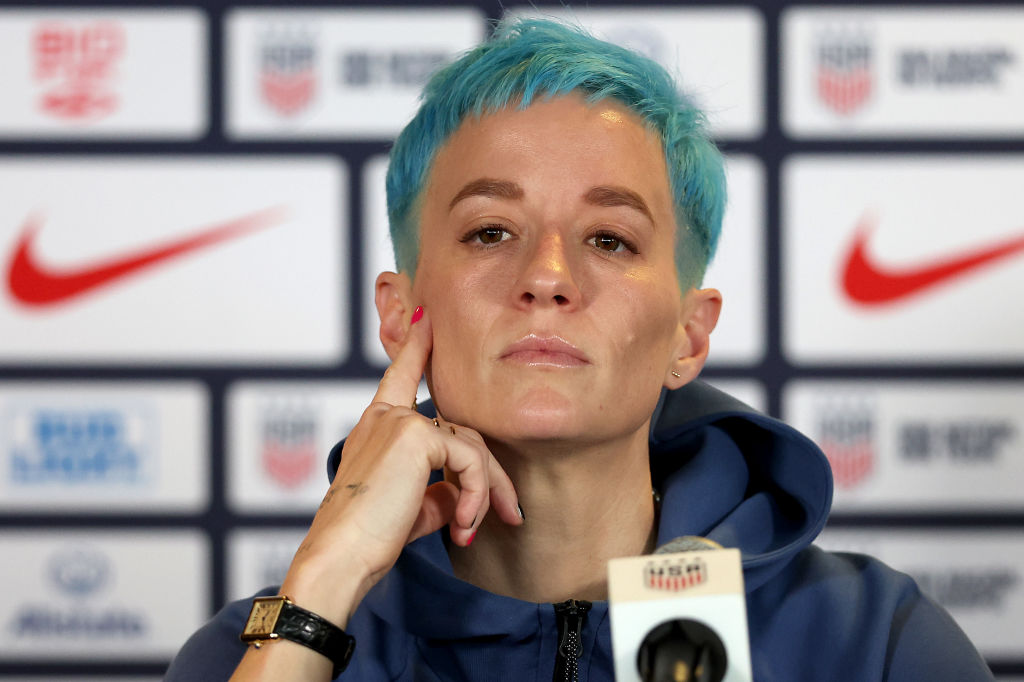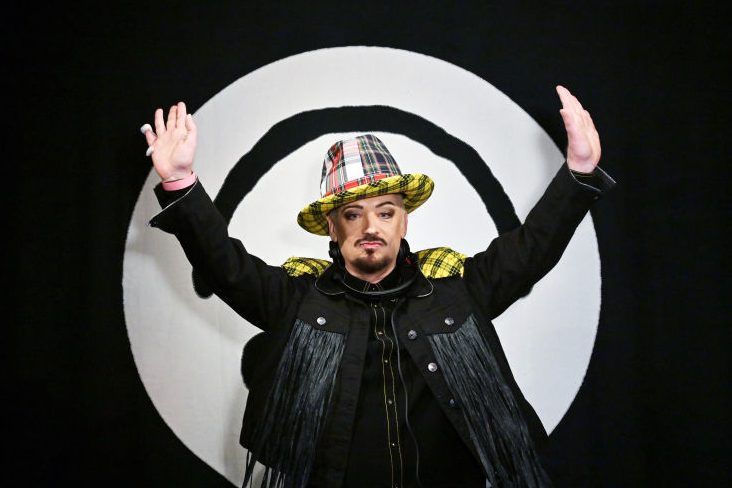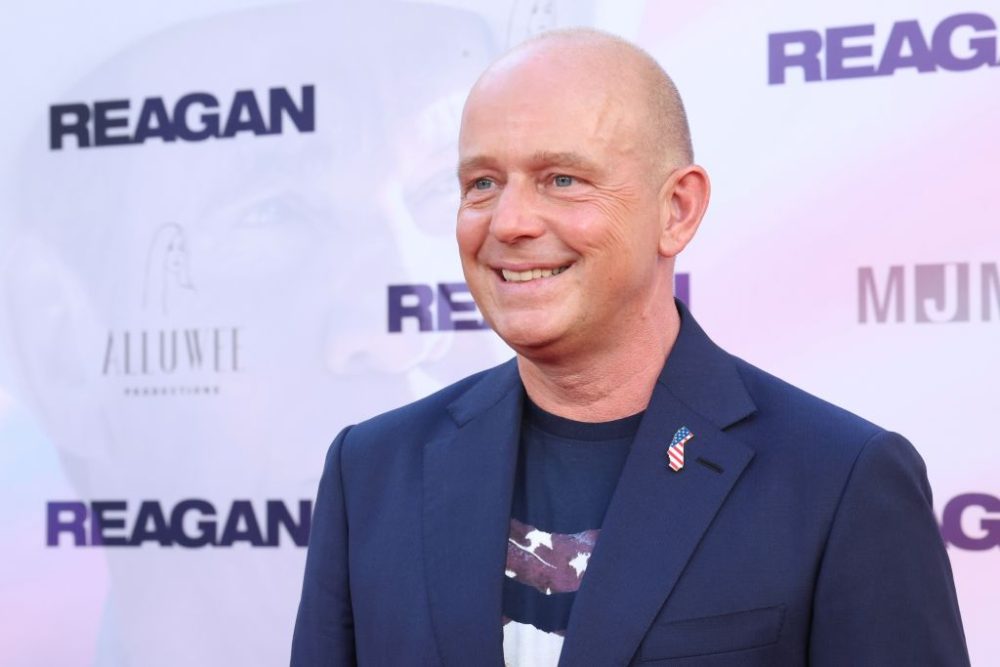Megan Rapinoe, the sometimes blue, sometimes pink-haired star forward on the US Women’s National Soccer Team, announced earlier this month that she will retire after the 2023 Women’s World Cup.
Rapinoe is a talented soccer player and an American success story. She grew up relatively modestly and her older brother, her inspiration to start playing soccer, suffered from a heroin addiction and spent time in prison. Rapinoe managed to avoid the all too common injury-to-opioid addiction pipeline that crippled her equally athletic fraternal twin sister’s soccer career. She went on to co-captain the USWNT from 2018-20, win two Women’s World Cups, lead her team to a gold medal in the 2012 London Summer Olympics, win a bronze medal in the 2020 Tokyo Summer Olympics and earn several awards for her play in the 2019 World Cup in France. She made it.
Rapinoe’s story could be an inspiration for any young female athlete, but, unfortunately, she has mired her success in victimhood.
Rapinoe was one of the loudest voices in the USWNT’s “fight for equal pay,” as the media headlines put it. More than two dozen members of the women’s team filed a lawsuit in March 2019 against the US Soccer Federation. The USWNT players claimed gender discrimination, primarily because they earned less World Cup prize money than their male counterparts, even though the USMNT has never advanced past the quarter-finals of the tournament.
Mainstream sports media mostly heralded the women’s team as trailblazing heroes. Commentators who pushed back on the idea that the women were paid less simply because they are women were branded sexists who don’t care about women’s sports. Rapinoe reveled in the controversy, convincing everyone that despite her 2019 World Cup victory, she was being shortchanged because of the evil US Soccer Federation.
“Everything is awesooome,” Rapinoe sang sarcastically as she got her makeup done for a Glamour Women of the Year photoshoot. Yes, life sounds very hard for her.
“Winning the World Cup is very difficult — it’s arduous, it’s a long cycle, it’s hard,” she said during an interview for the award. “And then on top of it, we inspired a movement that transcended the sport. Now we have to come home and fight a lawsuit to convince everyone that we’re worth a little bit more money? That’s bullshit.”
While Rapinoe cried that she was being treated unfairly, the facts told a different story. It turns out the USWNT negotiated their contract separately from the USMNT and agreed to different terms.
“It’s tough to make a straightforward comparison of the earnings for men and women players, because the two teams have different collective-bargaining agreements that outline different pay structures,” the Washington Post said in an analysis of the USWNT’s claims. “A contract player on the women’s team makes a base salary and can earn performance-based bonuses… On the men’s team, players earn only bonuses.”
The contract for women also includes maternity and childcare benefits and severance pay. So, basically, as biology would predict, the women opted for a more risk-averse contract that ensured they would get paid no matter what. The trade-off is that they don’t get as big of a bonus when they win. In 2020, a judge dismissed a portion of the USWNT’s lawsuit, noting that the women had negotiated a different pay structure than the men’s team.
World Cup winnings are a different story. FIFA, not the US Soccer Federation, determines the total prize pool for the men’s and women’s tournaments. In 2019, the men’s teams earned from a total pool of $400 million, while the women’s teams earned from a pool of $30 million. This makes it entirely possible that the women’s team could earn the same or less for winning the tournament as the men’s team does for making it to the quarter-finals. Is FIFA sexism the reason for the disparity? Probably not. The men’s tournament generates significantly more revenue globally than the women’s. It’s a distinctly US phenomenon that our women’s national team is more popular than the men’s. Globally, men’s soccer is dominant. For this year’s tournament, FIFA attempted to unbundle the men’s and women’s broadcasting rights, and reportedly fell $100 million short of their goal for sales of the women’s games.
Nonetheless, the USWNT appealed its lawsuit and reached a settlement with the US Soccer Federation in February 2022 for $24 million.
In addition to taking the lead on the pay dispute, Rapinoe was also reportedly the first white athlete to kneel for the national anthem in solidarity with then-NFL quarterback Colin Kaepernick. Kaepernick insisted he could not stand for the flag of a country that oppresses black people by giving them a $114 million contract to throw a football. He is also of the delusion that he is still talented enough to play in the NFL, something which Rapinoe apparently agrees with, as she thinks he wouldn’t have been cut if white quarterbacks had knelt alongside him. “It felt like this is what Colin was asking for,” Rapinoe said of kneeling. Her country is good enough to play for as a professional athlete making millions of dollars, apparently, but not good enough to stand for.
There are plenty of other Rapinoe moments to highlight as she prepares for retirement, but perhaps the worst is her recent shift to “trans advocacy.” Rapinoe was lucky enough to play soccer at a time when biological men who identify as women were not allowed to join the team. After all, she probably wouldn’t be the dominant player she is now considering the USWNT lost a friendly to the FC Dallas U-15 boys academy team.
“We as a country are trying to legislate away people’s full humanity,” Rapinoe claimed in an interview with TIME. “Now we care about women’s sports? That’s total bullshit. And show me all the trans people who are nefariously taking advantage of being trans in sports. It’s just not happening.”
Never mind Lia Thomas, Laurel Hubbard, CeCe Telfer, Terry Miller, Andraya Yearwood, Juniper Eastwood, Keelin Godsey, Gabbi Ludwig or Athena Del Rosario.
Rapinoe scoffed at the idea that a man could take a woman’s spot, declaring, “I see trans women as real women. What you’re saying automatically in the argument — you’re sort of telling on yourself already — is you don’t believe these people are women. Therefore, they’re taking the other spot. I don’t feel that way.”
Last month, a US women’s team comprised of former players lost 12-0 to a fifth-division British soccer team. Rapinoe supports allowing men to play in women’s sports despite their obvious biological advantage and the potential safety issues involved in mixed-gender contact sports. She is closing the door behind her on her way out.
Rapinoe deserves credit for her play on the field. Her actions off of it are unfortunate. How sad that one of women’s sports’ biggest stars has now become arguably its biggest enemy.

























